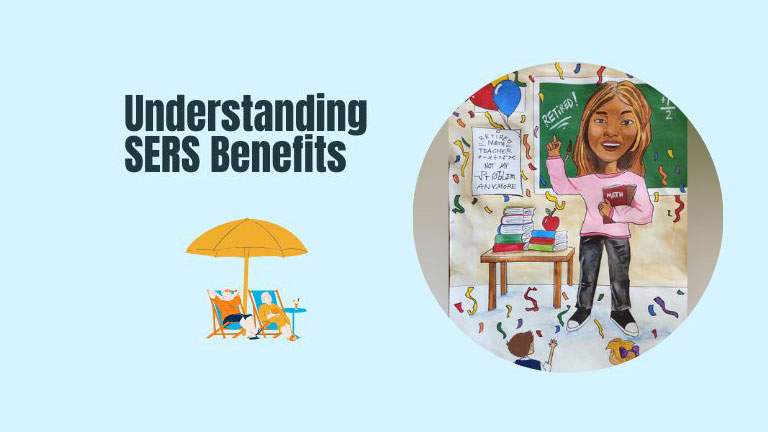
The rewards of employment go beyond salary and monetary benefits. Employees in many institutions get opportunities for personal and professional growth, enjoy financial stability, access to health insurance, and a regular income. Many workers, however, wonder how they will manage their lives and live without a paycheck when they stop working.
The School Employees Retirement System (SERS) is designed to help working community members prepare for retirement. Understanding how SERS works makes planning for a secure future easier. This article highlights everything employees need to know about SERS benefits.
The Benefits of SERP
After becoming accustomed to a steady monthly income, retiring without that income can be stressful, especially for those who do not have investments. However, those who have joined a retirement plan system are guaranteed SERS benefits, like a monthly income after retirement. The amount they receive depends on the years of service and their salary.
Joining SERS
Many employees ask whether anyone can join the program when they hear of the benefits that SERS gives its members. Unfortunately, this plan is not open to anyone; it is mainly open to those who work in public schools, such as teachers, drivers, custodians, and teacher aides.
Eligible employees are automatically enrolled once they begin a job covered by the SERS. Therefore, school professionals and those considering changing jobs should ask about SERS eligibility.
Retirement Payments
Before joining SERS, members need to understand how the payments are calculated. This knowledge helps members plan for retirement. Retirees receive payments based on a formula that considers their highest salaries and total years of service.
The longer employees work, the larger their pension, which explains why they should join the system as early as possible. Employees should also strive to increase their salary through professional development to maximize the SERS benefits.
Disability Benefits
If a member of the SERS is disabled or injured and can no longer work, they will qualify for disability benefits. In addition, family members may receive survivor benefits if a member dies before or after retirement. These provisions offer peace of mind not only to the workers but also to their loved ones.
Early Retirement
Some people retire early to have more time to travel, start a new career, care for a family member, or be ready for change. SERS members who retire early still receive their benefits; the only difference is that their benefits will be reduced due to the short service duration. However, they will not lose eligibility and will still receive the appropriate monthly benefits.
Health Care Assistance
As people age, their immune systems become slower to respond, increasing their chances of getting sick. So healthcare expenses can quickly rise beyond their financial means. SERS members in some states enjoy benefits like covering medical care costs after retirement, including dental, vision, and medical coverage. This support is important as it will help reduce the burden of future medical bills.
It does not matter how lucrative one’s job is; everyone will eventually retire since this is the cycle of life. Those who work in public schools can benefit from their SERS contributions.
The program supports members in many ways, from steady retirement incomes to health and survivor protection. Understanding these benefits allows members to plan wisely and maximize their future security. With proper planning, they will enjoy their retirement years.


